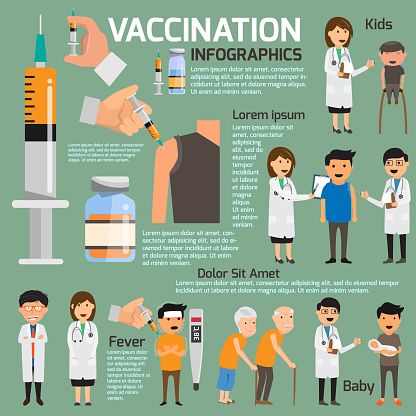Vaccinations and immunizations play a crucial role in safeguarding the health and well-being of individuals and the wider society. These preventive measures provide immunity against various infectious diseases, significantly reducing the risk of illness, complications, and even death. With the ongoing global pandemic and the emergence of new diseases, understanding the importance of vaccinations has never been more critical.
The Basics of Vaccinations
Vaccinations are medical interventions that stimulate the immune system to produce an immune response similar to a natural infection. They contain weakened or inactivated substances, such as viruses or bacteria, which prompt our bodies to recognize and respond to these pathogens if encountered in the future. By introducing these harmless versions of the disease-causing agent into our bodies, vaccinations train our immune systems to quickly and effectively fight off the real thing.
Protection Against Deadly Diseases
Vaccinations have played a pivotal role in eradicating or controlling severe diseases throughout history. Diseases like smallpox, polio, and measles, which were once prevalent and caused significant mortality rates, have been effectively controlled through mass vaccination campaigns. Smallpox, one of the deadliest diseases in history, was eradicated globally in the 1980s thanks to the widespread use of vaccines. Immunization programs continue to prevent millions of deaths each year, giving individuals a chance at a healthier life.
Herd Immunity: Protecting Vulnerable Populations
One of the critical benefits of widespread vaccinations is the concept of herd immunity, also known as community immunity. When a significant portion of the population is immune to a particular disease, it provides indirect protection to those who are unable to receive vaccines due to medical reasons or not meeting age requirements. By limiting the spread of the disease, herd immunity helps protect the most vulnerable members of society, such as newborn babies, the elderly, and individuals with weakened immune systems.
Vaccines and Disease Prevention
Vaccinations are specifically designed to prevent diseases by either providing immunity or reducing the severity of symptoms if an individual should become infected. For instance, the influenza vaccine helps protect against different strains of the flu virus, significantly reducing the risk of severe illness and complications. Similarly, vaccines like the tetanus shot protect against life-threatening bacterial infections that can arise from injuries or wounds. By staying up to date with recommended vaccinations, individuals can significantly reduce their risk of developing preventable diseases.
Controversies and Vaccine Safety
While vaccines have overwhelmingly proven to be safe and effective, there have been various controversies and misinformation surrounding them. It is essential to rely on scientifically-backed research from reputable health organizations and medical professionals when making informed decisions about vaccinations. Vaccines undergo rigorous testing and monitoring to ensure their safety and effectiveness. The benefits of vaccination far outweigh any potential risks, and the consequences of not vaccinating can be severe.
The Role of Immunizations in the Global Pandemic
In the face of the COVID-19 pandemic, vaccination programs have taken center stage in the fight against the virus. The development of safe and effective COVID-19 vaccines has provided hope and a way forward in controlling its spread. Widespread vaccination efforts are crucial in achieving herd immunity and mitigating the devastating effects of the pandemic worldwide. Vaccinations offer a path towards a return to normalcy and the protection of countless lives.
Vaccinations and immunizations have a long-standing history of protecting individuals and communities from deadly diseases. They not only prevent illness and complications but also empower individuals to contribute to the well-being of society. By understanding their importance, debunking misconceptions, and actively participating in vaccination programs, we can collectively work towards a healthier and safer future.

